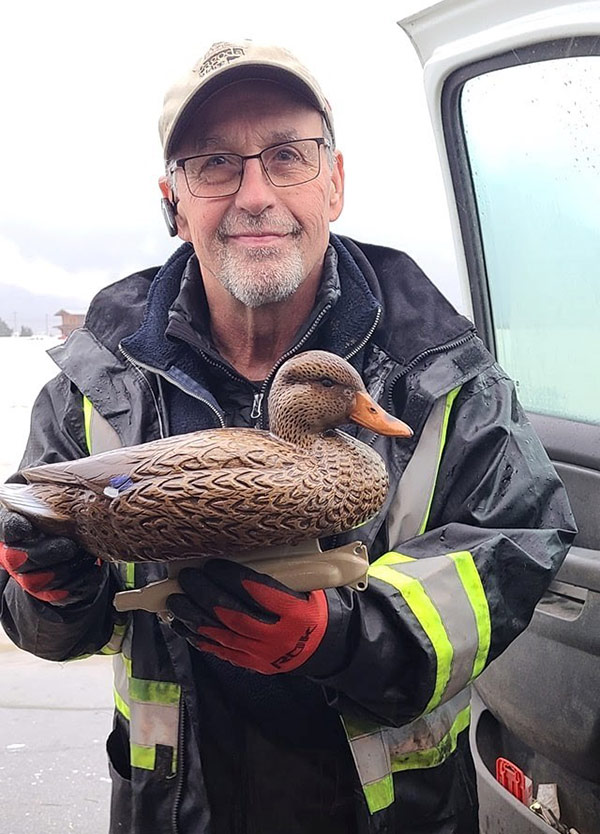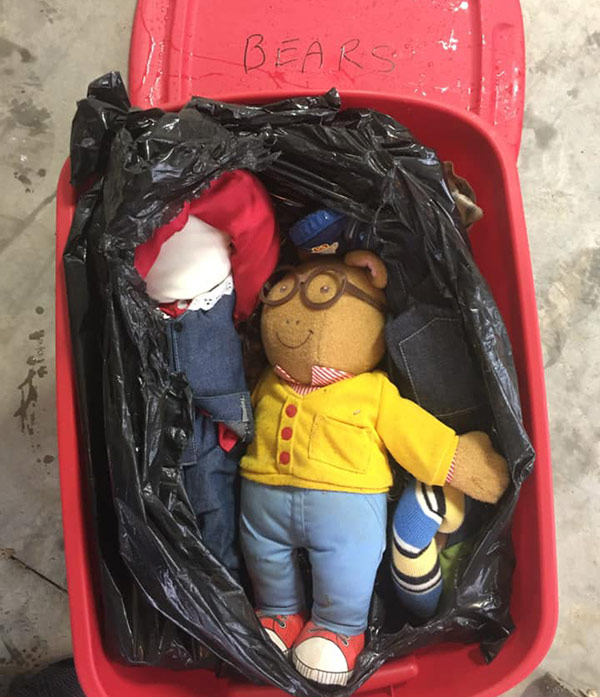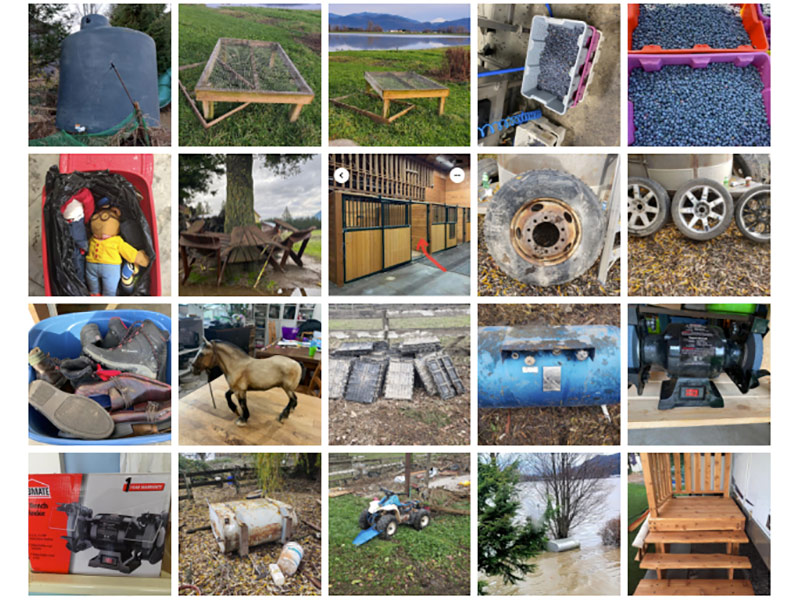When Deana Brandt found a decoy duck floating along No. 5 Road and Marion Road in Abbotsford, she knew that it was lost. She scooped it up, snapped a picture and shared her catch with a local community Facebook group reconnecting people with items that floated away in the recent B.C. floods.
Over 600 people have joined the online lost-and-found group Flood Flotsam. Folks have shared posts about all sorts of items; a box of found stuffed toys, a bag of hand-stitched Christmas stockings lost and located, a vintage Breyer horse that washed up on the banks of the Fraser River and a missing paddle board.
“Wondering if anyone knows where our paddleboard ended up,” posted the owner, saying they’d heard it “was used for saving some chickens. Which is great, but my kids would love to have it back.”
Someone in the group had shared they were looking for a bag of about 30 decoy ducks they believed had floated away. The wording had stuck with Brandt and the ducks were on her mind. “This is very minimal and seems ridiculous to post about.... Thought I would ask in case they were found,” the post read.
“Even though something might seem very small or insignificant, or it might not cost a lot, it’s still somebody’s,” said Brandt. “I know how that feels, when something that you really like goes missing.” Brandt responded to the poster and told them at least one duck was found and would be kept safe until they are able to come and claim it.
The area, known as the Sumas Prairie, was hit hard by a series of atmospheric rivers in mid-November. The low-lying farmlands were once filled by Sumas Lake, which was drained by settlers in the 1920s. Across southern B.C., at least four people were killed in the resulting mudslides, thousands of animals drowned, and properties and livelihoods were destroyed.

When Brandt and her husband Doug spotted the fake bird, they were driving through high waters to check on their family tree farm. “We’re not sure how the trees are going to do. We won’t find out probably until the spring if things that were dormant are coming back or not,” said Brandt.
The tree farm has been their family home for the last eight years. On Nov. 16, the family was woken up by officials and told they had to evacuate. Now, they’re staying in Barrowtown, east of Abbotsford, and going back to the farm when they can to start the cleanup.
“It actually looks more like it was a tornado rather than a flood because the trees picked up everything.” The rows of trees acted like a fishing net for all the debris that was washed away in the floods, said Brandt.
The family has found all sorts of items, including kayaks, bins, large holding tanks, lumber and even another decoy duck. They’ve posted their findings in the Facebook group in the hopes of reuniting people with their lost possessions.
For Brandt, it’s been a place of connection in a very overwhelming time. “Sometimes you’re just in survival mode. To know that we’re here for each other, then it just feels like we can get through it a little easier.”
There’s a “stick togetherness” in the farming community that has come through this disaster, said the Facebook group’s administrator, Mary Reeves. Reeves, who now lives in a townhouse in central Abbotsford, was raised on a farm in the Fraser Valley.
“It’s a beautiful thing to watch,” she said. “They really care about each other. And they may not even know each other that well, but they really understand the idea of neighbours and what neighbours do for each other.”
She said people are finding and looking for all sorts of items, large and small. Many of the items are irreplaceable and hold sentimental value. “There are things that may look like, ‘Oh, we can just replace them.’ But it’s not as simple as that.”
Finding these items can mean a lot to folks, as some people might have been uninsured and lost everything, including a way to make income.

The floods have caused an estimated $450 million in insured damages, making it the “most costly severe weather event in the province’s history,” according to the Insurance Bureau of Canada. The figure is likely much higher, as many people lived in high-risk areas where flood insurance coverage was not available.
Items that are recovered also have to be decontaminated. Floodwaters and sediment can contain hazardous materials like oil and gas, asbestos or fecal matter. The City of Abbotsford recommends that if you come across an item, you wear protection like gloves, boots and a mask.
Another Facebook group that Reeves helps run is connecting volunteers with cleanup requests. There are over 2,000 members and there have been lots of people and organizations offering specialty skills to restore or clean objects.
For the most part, Reeves said that she’s seen people helping one another out. But she recently decided to make the lost and found group private, after some of the found items started to go missing when people described the locations they were left in. Despite the setback, she’s focusing on the many acts of kindness she’s seen.
If you happen across an item along the Fraser River or if you are looking for a lost item, Reeves suggests sharing a post with a picture on social media or request to join the Facebook group.
“There will be lots of heartbreak for people who have posted and can’t seem to find what they’re looking for,” she said. People are now returning to their properties and finding things that have washed up on their properties or looking for things that floated away.
A return to normal won’t happen just because the waters are receding, she said. “This is a long haul.”
As the community starts to piece together the big picture of what happens next, Brandt is taking solace in small acts of kindness. “We’re all going through this thing even though some of us have never met,” she said. “But it’s these little things that build the connection that makes you feel like you can get through it.” ![]()
Read more: Environment
















Tyee Commenting Guidelines
Comments that violate guidelines risk being deleted, and violations may result in a temporary or permanent user ban. Maintain the spirit of good conversation to stay in the discussion.
*Please note The Tyee is not a forum for spreading misinformation about COVID-19, denying its existence or minimizing its risk to public health.
Do:
Do not: